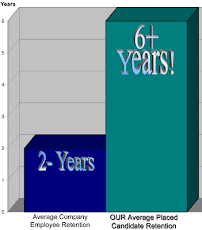Saturday
How You Can Plan for and Capitalize on the Recovery

How You Can Plan for and Capitalize on the Recovery
See details at http://bizmore.com/portal/message/4224
Ideas from a group of business experts:
If the recession is indeed "very likely over," as Federal Reserve chairman Ben Bernanke suggested recently, what then should executives and managers be focusing on and thinking about right now -- to put their businesses in the best possible position to capitalize when the economy picks up steam again? Conversely, what would they be wise not to be thinking about and focusing on any longer?
That is the trillion-dollar question many of us are asking now. While most agree that the recession is indeed over, managing the recovery may require skillful maneuvering. Here are some tips to help small- and medium-sized business managers not only survive but thrive during this transitionary period.
Reach out to your customers. Many are still shell-shocked and, as such, are fearful of spending. Let them know that your products/services are better than before and that they will need them now more than ever. Most important, ease them back into purchases. Offer to let them try out one new item before selling them the entire catalog.
Continue to manage your spending. Many of us have been in lockdown mode this past year when it comes to expenses. While it still makes sense to be mindful of the company budget, it may be time to ease up on the purse strings a bit. In a thriving economy, you need to spend money to make money. While we are not quite there yet, it might be time to test the waters by spending on some company needs (vs. company wants).
Businesses are starting to get busier and before too long, we will find ourselves out the recession. There are many employees out there that have been waiting patiently for new jobs and opportunities to become more widely available. Managers have enjoyed record setting retention levels over the last 18 months and some have mistakenly taken this for granted.
First, reflect back to what you learned during the recession so that those lessons are embedded in going forward. We have seen companies learn “organization" lessons in three areas.
Culture: we learned how to be bold, fast, and decisive. Keep that culture going.
Communication: we learned how to be more transparent, open, and candid. Keep the communication lines open with all employees.
Customer: we learned how to serve and target key customers. Keep personalizing the customer experience.
A crisis is a terrible thing to waste, do not waste it by making sure that what you learned gets embedded.
Second, plan on going forward to fully differentiate yourself. Make your culture an outside/in activity. Begin your culture change with your customer expectations and your firm brand. Know what it is you want to be known for by your best customers and translate that expectation into leadership and management actions.
Then, be very attentive to talent. Make sure that your employees are not only able and willing to do the work, but find meaning in the work. One of the great risks coming out of recession is that the gratitude attitude among employees will create a false positive. Employee retention and survey scores may be artificially high because employees are grateful to have a job. But, memories are longer then recessions and if you treated employees badly durin ghte recession, they may leave coming out. Work to help employees find meaning in the work that they do so hat they will be not only competent and committed, but contributing fully.
Seek out new opportunities. Some of the best businesses have been created during the worst times. Take advantage of the emerging new economy to see what more your company can offer. Consumers and businesses will have changed in the aftermath of the recession and change often leads to opportunity.
Reward loyalty. Your employees have stood by you and your company during the recession and many have endured setbacks including lost wages and benefits. Show them you appreciate their sacrifice. While it’s probably too soon to dish out Wall Street-type bonuses, a gift card or luncheon can go a long way.
Learn to hedge. Many of us lost sight of this in the years preceding the recession. We overborrowed and overspent. While the recession may be over, it can easily reemerge. Don’t repeat the mistakes of the past. Make sure your company maintains sufficient liquid reserves such that no matter what happens, now or in the future, it will survive.
Clearly recessions are macro events with micro implications. Bernanke’s assertion that the recession is very likely over should be considered as one input into your own determination of the micro conditions for your particular business. Ask yourselves these questions:
• 1. Are your customers in greater need of your products today than they were six months ago?
• 2. Do you anticipate that your customers will have more economic resources - cash or other - to invest in your business?
• 3. Is your market smaller, the same or larger? How have changing conditions changed the profile of your customer base?
• 4. How have your competitors fared in this downturn? Have they dropped offerings you could deliver
• 5. With this reset in mind, what is the expectation of your customer base? Lower investment upfront? Smaller purchases? Or, is there pent-up demand that will rise when conditions improve?
Then do some scenario planning:
How are you prepared to handle an increase in sales volume? Do you have access to the inputs? At what cost? Have delivery times changed?
• 1. Labor: Can you scale up without making long-term commitments? Can you use part-timers, consultants or lesser-priced employees?
• 2. If you business requires training, do you have the right training system in place? Quiet times are a good time to invest in streamlining systems and training.
• 3. In the event of a prolonged downturn or flat cycle, are there opportunities to consolidate the market – acquire a competitor and reduce costs?
Recoveries can be rocky but with a plan to address the uncertainties, you’ll be ahead of the game regardless of where things go.
The key to business success is relationships – relationships with your employees so they will do good work and provide ideas, relationships with your customers so they will be loyal and tell you how to get better. Therefore, the best thing to do as the recovery takes hold is to do whatever necessary to repair important relationships that were harmed by actions you may have taken during the economic crisis that you thought were necessary to survive.
One way to repair relationships is to apologize. Research in consumer behavior shows that when businesses admit mistakes and problems, apologize, and provide some credible indication of what steps they have taken so the problem doesn’t recur, customers are quite forgiving. Employees, too, understand the economic stress companies have faced. They also can by won back by heartfelt expressions of sympathy and concern and concrete actions to show that the relationship matters. Figure out who matters, and be sure they are still with you – customers, suppliers, creditors, employees – and, if not, win them back.
Businesses are starting to get busier and before too long, we will find ourselves out the recession. There are many employees out there that have been waiting patiently for new jobs and opportunities to become more widely available. Managers have enjoyed record setting retention levels over the last 18 months and some have mistakenly taken this for granted.
It will be very important for managers in companies of all sizes and industries to consider who on their teams are likely to stay as things improve, and who may not. These types of assessments or “Talent Reviews” are an essential part of a strong overall Talent Management Strategy, and should be implemented in one form or another in good times or bad. They can actually be pretty simple as long as they cover some key points:
• Assess everyone in your team.
• Determine their likeliness to stay (usually relying on informal data).
• Revisit their training and development plan.
• Identify their goals for advancement.
• Calibrate their goals with the needs of the business
I am concerned that managers are not paying enough attention to this and that more teams will unravel because of turnover than need be in the coming months. The managers that focus some attention and effort back to individuals within the workgroup and to the team itself, will always outperform peers, but as the job market opens up, that gap will only widen."
Subscribe to:
Comments (Atom)













